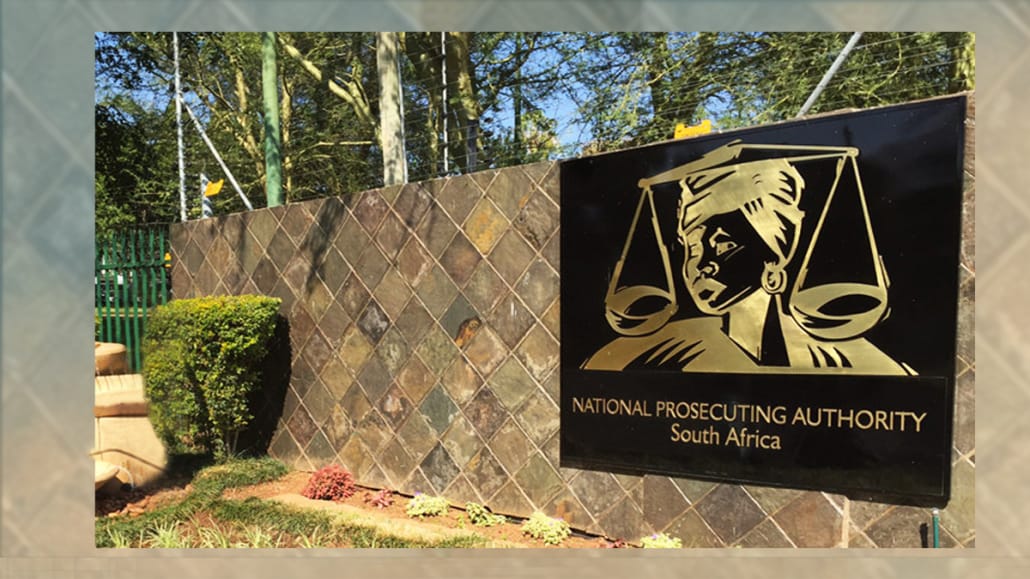By Valencia Talane
First published on News24
The events of last week, in particular Wednesday 30 September’s high-profile arrests relating to the irregular Free State asbestos contract of 2014, indicate a step in the right direction in the fight against corruption.
The Zondo commission has explored the contract extensively over the past few weeks, and some of those arrested have reportedly previously appeared before the deputy chief justice. Through collaborative efforts between the Special Investigating Unit (SIU) and the Hawks, the individuals were rounded up in a simultaneous swoop across three provinces.
The ball is now in the National Prosecuting Authority’s (NPA) court as of last Friday, when the arrestees appeared before the bench in Bloemfontein – though one cannot help but notice how it has taken six years for those involved in the contract to face the music.
The Office of the Public Protector first received a complaint from a DA member of the Free State legislature in October 2015, a year after the contract was signed and advance payments made.
Now, imagine a scenario where the different agencies involved could record all details relating to this and other high-profile corruption cases in a consolidated report, in their areas of speciality. Then every year there would be a readily available progress report for as long as the case in question is active.
This report would pursue the notion of “no fear or favour” and would even expose any political interference or obstruction encountered in the process.
It is a massive task, one that would require a lot of admin, accountability and reporting. It would also be cheaper than establishing a commission of enquiry for everything that goes wrong. Gaps would be identified in the different procedures, progress would be immediately apparent, and public confidence gradually restored.
This is recommendation 11 of 12 submitted jointly by Corruption Watch and the Institute for Security Studies to Zondo in June last year. The commission acknowledged receipt, and only time will tell if it agrees with what is proposed.
Collaboration between enforcement agencies builds effectiveness
In the proposal, it is duly noted that the near collapse of the criminal justice system over a number of years has not been an accident. In fact, the system found itself in the machinations of a larger, politically motivated structure espousing patronage as a rule of thumb.
For a dominant faction of the ANC to succeed in containing absolute power, the submission suggests, it needs to ensure that law enforcement agencies and other vital state functions are in its corner.
This did happen for much of the past decade, and many analysts predict that ridding the system of bad elements – vital for its restoration – is likely to take a number of years.
The SIU says it has been working on the case for a year, while Public Protector advocate Busisiwe Mkhwebane rubber-stamped her report in March this year.
If those two institutions, together with the Hawks and later the NPA, could produce an annual report of corruption cases – much like the Auditor-General does – that records all findings and actions taken, it would significantly strengthen the country’s anti-corruption strategy.
The corruption fight would also be bolstered beyond the political rhetoric we have become accustomed to, and public confidence in the agencies would be restored.
Now that there appears to be a distinct move towards transforming these important agencies, it is without a doubt vital that their very foundational structures are equally transformed.
For this to happen, the submission further recommends a complete audit of the appointment processes of senior police service members, including those in its crime intelligence unit, which itself has been dogged for years by allegations of maladministration and corruption. This will help determine which individuals in those structures have earned their seniority and who were appointed without due process being followed.
It is hoped that such an approach will also help strengthen anti-corruption investigative work, which in turn will translate into prosecutable cases for the NPA.
Civil society’s contribution supports democracy
Corruption Watch has, in the past, made parliamentary submissions on the appointment processes of heads of institutions in the criminal justice system, largely to highlight the constitutional, and therefore mandatory, principles of transparency, openness and public participation.
To date, there have been mixed reactions to these efforts. Where one parliamentary portfolio committee may share and support the sentiments of such submissions, another may blatantly ignore them.
To the extent that the Zondo commission sees fit, the recommendations made by the two organisations may help reposition the structural framework in the functions of the different law enforcement agencies to support morale.
We are a long way away from a consensus that suggests a corruption-free police service, but we can achieve a service that is held accountable by the citizens it serves, with the right people at the top, and the right rules governing them. It also cannot afford to be politicised in any way, and must realise the need for accountability across its ranks.
Equal emphasis should be put on the NPA, with the same principles being followed.
Imagine a year from now, a consolidated report that will reveal all efforts employed in pursuit of the arrests and prosecutions in the asbestos case, flaws and all.
Imagine each institution being able to state its strengths and weaknesses and show how the collaboration would have assisted in bridging those gaps.
Would that not bring peace of mind, knowing that rather than signalling inaction, the agencies’ lengthy silence meant they were working hard to account to you, their first priority, in a country so riddled with corruption that the most basic services are a luxury for some?
• Talane is a senior journalist at Corruption Watch.

